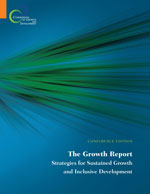Check out the candidates’ science and technology related policies here.
I conclude this series of analyses of candidates’ science and technology policies with Senator Obama. If I can take anything from this exercise is that it defies easy surface analysis. Going on what is typically considered science and technology policy will miss things that are relevant and important for science and technology. Education, for instance, underlies a fair amount of science and technology policy, and the two areas are not well connected in federal policies, or candidates’ campaigns.
Senator Obama’s science and technology policies are not terribly different from those of Senators Clinton and McCain, at least for the big picture. For me, the differences emerge through how Senator Obama presents these issues, and in how he makes a more explicit appeal for using science and technology to achieve policy goals.
For instance, while Senator Obama hits many of the same points as Senator Clinton does in her Innovation Agenda it’s placed in his website’sTechnology section among discussion of his proposals on broadband deployment, internet predators, privacy and network neutrality. It’s the collection of seemingly disparate issues linked, at least in part, through technology, that strikes me as different and encouraging.
The Senator’s science policies are also described in a separate section. They reflect the same basic priorities found in Senator Clinton’s Innovation Agenda, but the doubling Senator Obama wants doesn’t have the timeframe or specifics that Senator Clintons’ plan does. Again, the difference is in presentation. The goals of both Democratic candidates in conventional science and technology policies (such as research funding, more underrepresented groups, visas for scientists and engineers) are essentially the same, though the smaller details differ. While those differences matter in terms of policy and governance, I am not so confident that those small differences will matter politically.
One notable point about Senator Obama’s policies is his willingness to use technology in order to achieve other policy goals. To paraphrase the categorization of Harvey Brooks, Senator Obama is interested in technology for policy at least as much as policy for science and technology. Again, the other candidates do this too, primarily in energy, health care, and environmental policy. To offer policies about using technology to open government and improve infrastructure should serve as a reminder that science and technology have many roles to play in public policy and in political campaigns. I think that advocacy groups would be better served in their efforts to increase federal support for science and technology to better engage with the many different roles science and technology can play in these areas.

